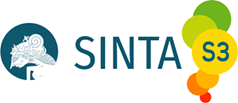Model Pembelajaran Problem Solving Dalam Mempengaruhi Kemampuan Pemecahan Masalah Matematika Dengan Pendekatan Polya Pada Materi KPK dan FPB
DOI:
https://doi.org/10.33394/mpm.v13i1.15817Keywords:
Model Pembelajaran Problem Solving, Kemampuan Pemecahan Masalah Matematika, Pendekatan PolyaAbstract
The low ability of students to solve mathematical problems in the context of learning at school is a challenge, especially in understanding story problems and basic concepts of KPK and FPB through the Polya approach. The learning process that can increase student involvement such as the problem solving learning model. This study aims to evaluate the impact of implementing the problem solving learning model on students' mathematical problem solving abilities. The method used in this study is a quantitative approach with a quasi-experimental design. Data collection techniques are carried out through observation, testing, and documentation. The sample used in the study involved 50 students of class V MIS Jam'iyyatul Khair. Data analysis was carried out using descriptive and inferential methods. The results showed that the average score of mathematical problem solving abilities in the experimental class that applied the problem solving learning model reached 85.04, while the control group that used the scientific learning model only obtained an average score of 74.24. Statistical analysis carried out using the independent sample T test produced a significance value of 0.002, which was below the significance level of 0.05. This finding supports (H1) and rejects (H0), which shows that the application of the problem solving learning paradigm has a significant influence on students' mathematical problem solving abilities
Downloads
Published
How to Cite
Issue
Section
Citation Check
License
Authors who publish with this journal agree to the following terms:
- Authors retain copyright and grant the journal right of first publication with the work simultaneously licensed under a Creative Commons Attribution License that allows others to share the work with an acknowledgement of the work's authorship and initial publication in this journal.
- Authors are able to enter into separate, additional contractual arrangements for the non-exclusive distribution of the journal's published version of the work (e.g., post it to an institutional repository or publish it in a book), with an acknowledgement of its initial publication in this journal.
- Authors are permitted and encouraged to post their work online (e.g., in institutional repositories or on their website) prior to and during the submission process, as it can lead to productive exchanges, as well as earlier and greater citation of published work (See The Effect of Open Access).
Â













